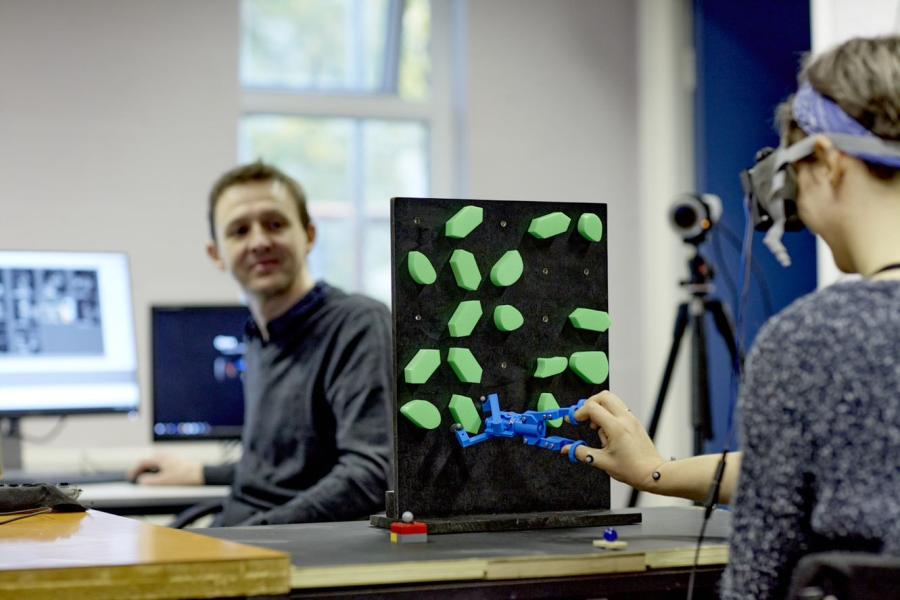Researchers at Bangor have received significant funding to develop upper-limb prostheses that are easier to use and more effective, improving quality of life and independence for children.
Prosthesis provision for infants and young children is limited, and the basic-science principles that inform how children learn to use prosthetic devices are poorly understood.
The project at Bangor University is a close collaboration between academic researchers and prosthetics development company, Ambionics, founded and directed by Bangor psychology alumnus Ben Ryan.
Ben’s son Sol needed emergency surgery at just 10 days old. Surgeons made the devastating decision to amputate Sol's left arm just below the elbow because of a blood clot. Prosthetic arms were not available to Sol until he was a year old, which spurred Ben on to find new solutions.
Using state-of-the-art 3D printing technology at the Bangor University Innovation lab, Ben and University staff were able to create a new prototype of an arm, hand and a moveable thumb to enable grip.
Providing unique individualised prostheses to children quickly and affordably, Ambionics have already helped dozens of families, both nationally and internationally.
Bringing in rigorous experimental methods in cutting-edge movement science, the new collaboration with Bangor academics promises to strengthen the depth and longevity of this impact by uncovering the principles that govern the intuitive use of prostheses in children and harnessing this knowledge to inform future prostheses design.
Using a combination of basic experiments, and studies with limb-difference children, our research aims to advance understanding of the fundamental movement-science principles governing how the developing brain controls the limbs, and external devices in particular.
This project will use human movement science to identify these principles and develop new upper-limb prostheses for infants and young children. Our aims are to improve prosthesis functionality and reduce rejection rates, improving quality-of-life and independence for children with limb loss.


